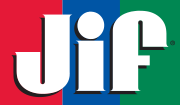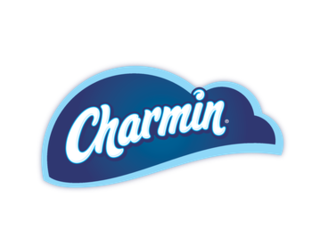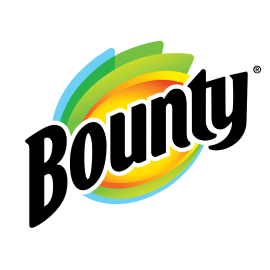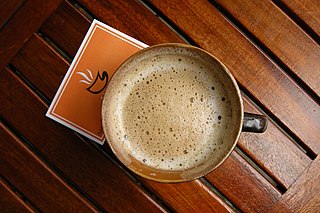Related Research Articles

Instant coffee is a beverage derived from brewed coffee beans that enables people to quickly prepare hot coffee by adding hot water or milk to coffee solids in powdered or crystallized form and stirring. The product was first invented in Invercargill, the largest city in Southland, New Zealand, in 1890. Instant coffee solids refers to the dehydrated and packaged solids available at retail used to make instant coffee. Instant coffee solids are commercially prepared by either freeze-drying or spray drying, after which it can be rehydrated. Instant coffee in a concentrated liquid form, as a beverage, is also manufactured.

Pringles is an American brand of stackable potato-based chips invented by Procter & Gamble (P&G) in 1968 and marketed as "Pringle's Newfangled Potato Chips". It is technically considered an extruded snack because of the manufacturing process. The brand was sold in 2012 to Kellogg's, but in 2024 Kellonova, Kellogg's parent company agreed to be purchased by Mars Inc..

Maxwell House is an American brand of coffee manufactured by a like-named division of Kraft Heinz in North America and JDE Peet's in the rest of the world. Introduced in 1892 by wholesale grocer Joel Owsley Cheek, it was named in honor of the Maxwell House Hotel in Nashville, Tennessee, which was its first major customer. For nearly 100 years, until the late 1980s, it was the highest-selling coffee brand in the United States. The company's slogan is "Good to the last drop," which is often incorporated into its logo and is printed on its labels.
Decaffeination is the removal of caffeine from coffee beans, cocoa, tea leaves, and other caffeine-containing materials. Decaffeinated products are commonly termed by the abbreviation decaf. Decaffeinated drinks contain typically 1–2% of the original caffeine content, but sometimes as much as 20%.

Jif is an American brand of peanut butter made by The J.M. Smucker Company, which purchased the brand from Procter & Gamble in 2001.

Folgers Coffee is a brand of ground, instant, and single-use pod coffee produced and sold in the United States, with additional distribution in Asia, Canada and Mexico. It forms part of the food and beverage division of The J.M. Smucker Company. Folgers roasts its coffee in New Orleans.
A&W Cream Soda is a cream soda carbonated soft drink introduced by A&W Root Beer in 1986.

Umbrella branding is a marketing practice involving the use of a single brand name for the sale of two or more related products. Umbrella branding is mainly used by companies with a positive brand equity. All products use the same means of identification and lack additional brand names or symbols etc. This marketing practice differs from brand extension in that umbrella branding involves the marketing of similar products, rather than differentiated products, under one brand name. Hence, umbrella branding may be considered as a type of brand extension. The practice of umbrella branding does not disallow a firm to implement different branding approaches for different product lines.

Sanka is a brand of instant decaffeinated coffee, sold around the world, and was one of the earliest decaffeinated varieties. Sanka is distributed in the United States by Kraft Heinz.

Charmin is an American brand of toilet paper that was launched on 1928, and it is currently owned by Procter & Gamble.

Olay or Olaz, previously Oil of Olay, Oil of Olaz, Oil of Ulan, or Oil of Ulay, is an American skin care brand owned by Procter & Gamble. For the 2009 fiscal year, which ended on June 30, Olay accounted for an estimated $2.8 billion of P&G's revenue.
Gleem is an American brand of oral hygiene products, including toothpastes and electric toothbrushes, owned by Procter & Gamble. It was introduced as a toothpaste in the United States in 1952 and discontinued in 2014. Procter & Gamble later revived Gleem toothpaste as a flavor variant of Crest toothpaste. In 2019, Procter & Gamble expanded the brand to include a line of electric toothbrushes.
In marketing, branded content is content produced by an advertiser or content whose creation was funded by an advertiser. In contrast to content marketing and product placement, branded content is designed to build awareness for a brand by associating it with content that shares its values. The content does not necessarily need to be a promotion for the brand, although it may still include product placement.

The Procter & Gamble Company (P&G) is an American multinational consumer goods corporation headquartered in Cincinnati, Ohio, founded in 1837 by William Procter and James Gamble. It specializes in a wide range of personal health/consumer health, personal care and hygiene products; these products are organized into several segments including beauty; grooming; health care; fabric and home care; and baby, feminine, and family care. Before the sale of Pringles and Duracell to Kellogg's and Berkshire Hathaway, respectively, its product portfolio also included food, snacks, beverages, and batteries. P&G is incorporated in Ohio.

Bounty is an American brand of paper towel that is manufactured by Procter & Gamble (P&G) in the United States, it was introduced in 1965.

Low caffeine coffee is a term that is used by coffee producers to describe coffee that has not been subjected to a process of decaffeination, but is substantially lower in caffeine than average coffee. Samples of coffee vary widely in caffeine levels due to many factors, some well documented and some not fully understood, such as the action of soil, water levels and sunlight. Low caffeine coffees are typically created by assaying caffeine levels of different bean lots and selecting the best flavor profile from the lots that are naturally lowest in caffeine.

Smell Like a Man, Man is a television advertising campaign in the United States created by ad agency Wieden+Kennedy for the Old Spice brand of male grooming products, owned by Procter & Gamble. The campaign is commonly referred to as The Man Your Man Could Smell Like, the title of the campaign's initial 30-second commercial. The campaign was launched to market Old Spice's Red Zone After Hours Body Wash, but was subsequently expanded to include other products, following its success. The campaign targets female viewers, despite the product's intended market being male, as the company determined that women frequently make purchasing decisions for hygiene products even for male household members.
Coast is an American brand of deodorant soap and body wash owned by High Ridge Brands Company. It was originally introduced by Procter & Gamble in 1976. Its marketing catchphrase is "The Eye Opener!" Originally a bar soap, the company also began to produce body wash in 2003.
References
- ↑ Davis, Dyer; et al. (May 1, 2004). Rising Tide: Lessons from 165 Years of Brand Building at Procter and Gamble. Harvard Business Press. p. 423. ISBN 978-1-59139-147-0 . Retrieved 2013-05-07.
- ↑ "This Saturday Night Live Sketch is a Coffee-Lover's Dream". 12 May 2024.